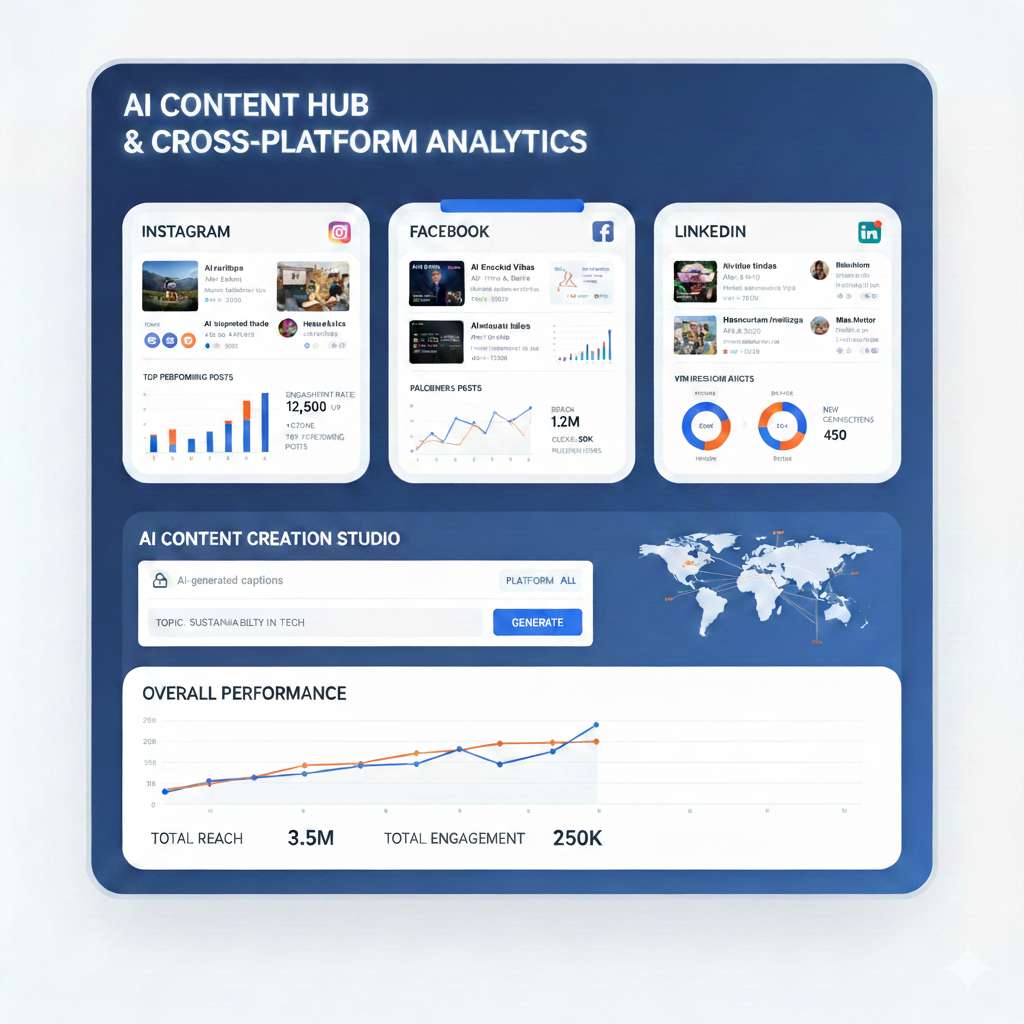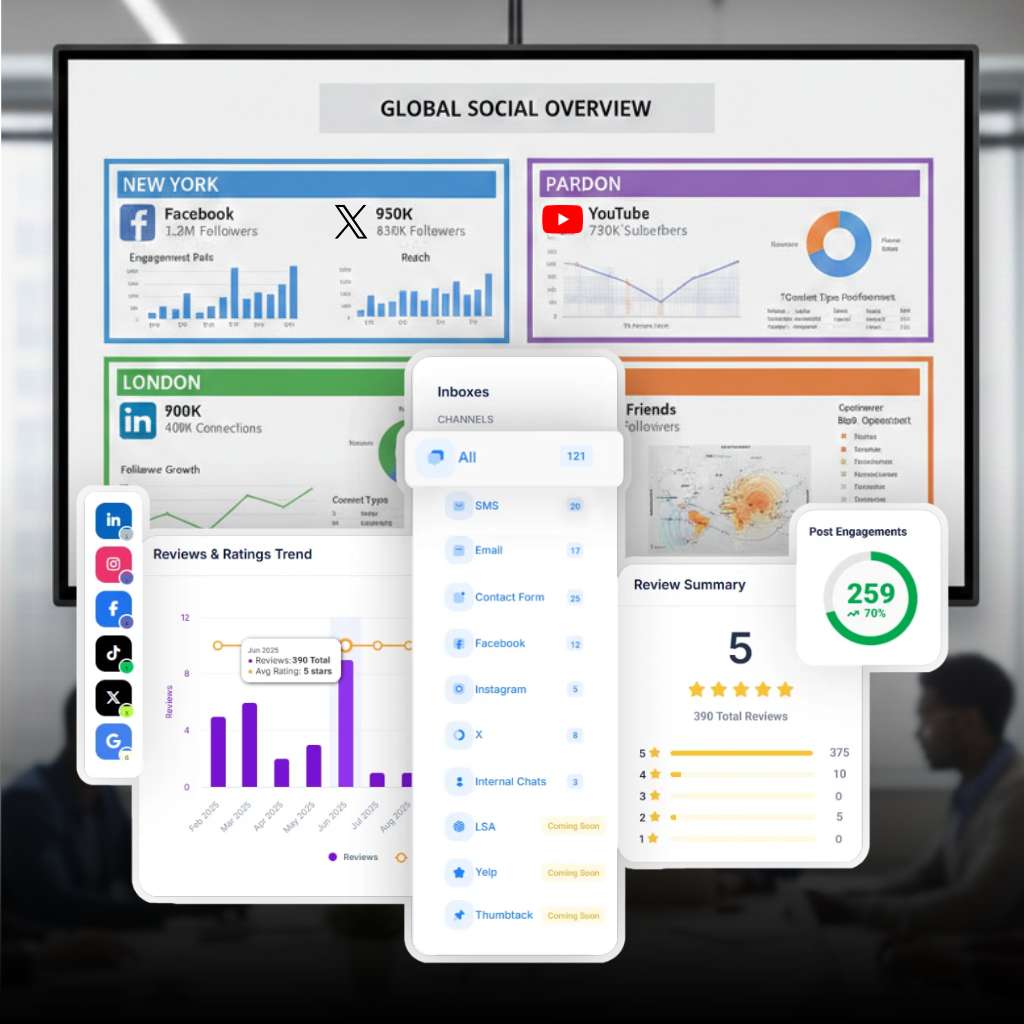Social media continues to be a critical driver for small business growth. From customer engagement to lead generation, the right tools help streamline processes that once consumed hours of manual effort. Small businesses that use social media effectively see measurable gains. A recent Sprout Social report revealed that 76% of consumers are more likely to buy from a brand they feel connected to on social media. That means choosing the right tools isn’t optional—it directly impacts revenue and reputation.
This guide explores how small businesses can benefit from social media tools, what features to prioritize, and which strategies help maximize results.
Why Social Media Tools Matter for Small Businesses
Managing multiple platforms without support is a challenge. Scheduling posts, tracking conversations, analyzing performance, and responding quickly to customers takes time. Social media tools simplify this by centralizing tasks in one place.
Key benefits include:
✅ Time savings: Automate posting schedules across platforms.
✅ Consistency: Keep your brand voice uniform.
✅ Data-driven decisions: Access analytics to track what works.
✅ Better customer engagement: Reply faster and in context.
According to Statista, over 91% of U.S. businesses with more than 100 employees use social media for marketing. Small businesses competing for the same attention need tools that help them stay efficient without sacrificing quality.

Features to Look For in Social Media Tools
Not all tools are built the same. Before investing in one, small businesses should evaluate which features bring the most value.
Scheduling and Publishing
- Plan content in advance
- Use auto-posting to maintain consistency
- Preview posts across platforms to avoid formatting issues
Analytics and Reporting
- Track impressions, clicks, and conversions
- Identify top-performing content
- Monitor ROI from campaigns
Engagement Management
- Consolidate comments, messages, and mentions into one dashboard
- Respond faster to customer questions
- Assign responses to team members when needed
Social Listening
- Monitor brand mentions and industry keywords
- Stay ahead of customer sentiment
- Spot opportunities for content or product improvements
Best Practices for Using Social Media Tools Effectively
Simply having the tools in place isn’t enough. Businesses that get the most from them use clear strategies backed by consistent execution.
- Plan Content Around Goals
Random posting won’t build traction. Define whether the aim is brand awareness, lead generation, or customer retention. Build a content calendar that reflects these goals.
- Post at the Right Times
Different audiences are active at different hours. Research from Hootsuite found that Instagram engagement rates peak on Wednesdays at 11 a.m. and Fridays between 10 and 11 a.m. Using scheduling tools to post at these times can increase visibility.
- Track Metrics that Matter
Vanity metrics like likes and follower counts provide surface-level insight. Focus on meaningful KPIs such as:
✅ Click-through rates
✅ Conversion rates
✅ Customer response time
- Use Automation Wisely
Automation speeds up repetitive tasks but should never replace genuine interaction. Reserve personal responses for customer service or high-value leads.
- Keep Testing and Improving
Experiment with different content types such as short videos, stories, polls, and carousels. Then, compare performance data. Double down on formats that resonate most with your audience.

Popular Social Media Tools Small Businesses Can Try
Here are categories of tools widely used by small businesses, along with their primary functions:
- Scheduling and Management: Platforms like Buffer and Hootsuite simplify posting.
- Design Tools: Canva makes it easy to create professional visuals without a graphic designer.
- Analytics Platforms: Google Analytics helps track traffic from social campaigns to your website.
- Reputation Monitoring: Tools that consolidate reviews and brand mentions provide a clearer view of public perception.
The right combination depends on business goals. A small retail shop may prioritize customer engagement, while a service-based business might focus more on review collection and quick response tools.
Another factor to consider is scalability. Small businesses often start with free or low-cost versions of these tools, but as they grow, they need platforms that can handle larger audiences and more complex workflows. Choosing a tool that offers tiered pricing or advanced features can prevent the need for frequent platform switching.
It’s also important to think about ease of use. A tool may have powerful features, but if it requires extensive training or constant troubleshooting, adoption will lag. Platforms designed with intuitive dashboards and mobile accessibility help teams stay productive without a steep learning curve.
Finally, customer support and community resources matter. Reliable tools often provide training libraries, active user communities, or responsive help desks. These resources can save small businesses significant time when learning how to make the most of their investment.

Measuring Success with Social Media Tools
Success is about more than follower counts. Tools should provide a measurable impact that aligns with business growth. Key benchmarks to track include:
- Engagement Rate: Interactions relative to audience size.
- Lead Conversion: How many interactions translate to actual sales or bookings.
- Customer Sentiment: Whether interactions are trending positive or negative.
According to HubSpot, 73% of marketers say social media increases traffic, and over 50% report that it boosts sales. Measuring these outcomes confirms whether chosen tools are delivering results worth the investment.
Let’s Get Started on Your Social Media Dominance
The best social media tools give small businesses the ability to compete with larger brands by leveling the playing field in terms of reach, responsiveness, and insights. The right setup saves time, reduces guesswork, and strengthens customer relationships—all critical components of growth.
If you’re ready to improve how your business manages social media, Unify360 can help you choose the right tools and strategies that simplify engagement while driving measurable results! Give us a call today and find out more.






